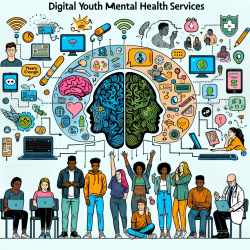Enhancing Practitioner Skills Through HPV Awareness and Education
As a speech-language pathologist dedicated to creating positive outcomes for children, it is crucial to stay informed about the latest research and trends that can impact our practice. A recent study titled Exploring factors influencing awareness and knowledge of human papillomavirus in Chinese college students: A cross-sectional study provides valuable insights that can be leveraged to improve educational strategies and enhance awareness about Human Papillomavirus (HPV).
Understanding the Study
This cross-sectional study conducted in Jiangsu Province, China, surveyed 2,679 college students to assess their awareness and knowledge of HPV and its vaccine. Despite a high willingness to receive the HPV vaccine, the actual vaccination rates were low. The study identified significant knowledge gaps and misconceptions, particularly regarding HPV's association with HIV/AIDS and its treatment.
Key Findings and Implications
The study revealed that factors significantly associated with better HPV knowledge included:
- Age (22–24 years)
- Female gender
- Being a medical major
- Being in a relationship
- Familiarity with HPV
- Participation in sexual education programs
Despite a high willingness to receive the HPV vaccine (91.64%), actual vaccination rates remained low. This indicates that while Chinese college students were generally aware of HPV, targeted educational interventions are essential to address knowledge gaps and promote HPV vaccination effectively.
Applying These Insights in Practice
As practitioners, we can take several steps to apply these insights to our practice:
- Enhance Education: Develop targeted educational programs that address the specific knowledge gaps identified in the study. This includes clarifying misconceptions about HPV transmission, symptoms, and treatment.
- Promote Awareness: Use data-driven approaches to promote awareness about HPV and its vaccine among students and parents. This can include workshops, seminars, and informational materials.
- Collaborate with Schools: Work closely with schools to integrate HPV education into the curriculum, ensuring that students receive accurate and comprehensive information.
- Utilize Technology: Leverage online platforms and social media to disseminate information and engage with students, parents, and educators.
Encouraging Further Research
While this study provides valuable insights, further research is needed to explore HPV awareness and vaccination rates in different regions and populations. Practitioners are encouraged to collaborate with researchers to conduct studies that can inform practice and policy.
To read the original research paper, please follow this link: Exploring factors influencing awareness and knowledge of human papillomavirus in Chinese college students: A cross-sectional study.










